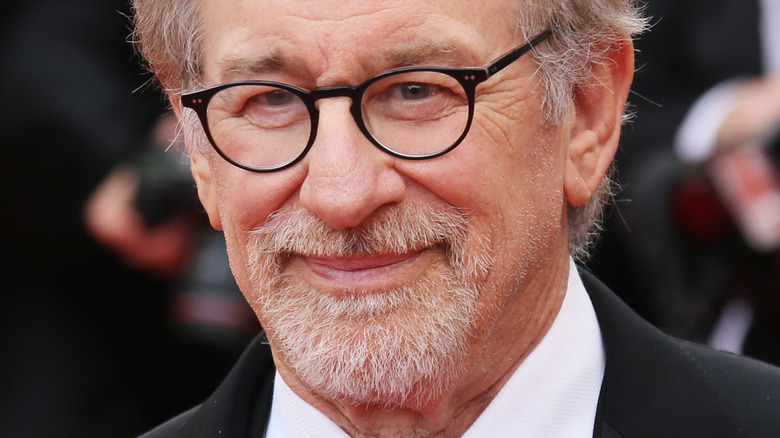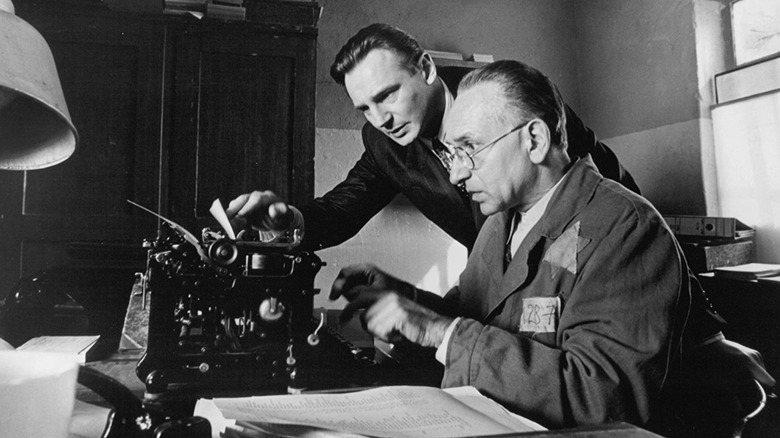Steven Spielberg Reiterates That Schindler's List Was Made To Combat Holocaust Denial
Steven Spielberg's legendary filmography contains its fair share of movies that deal with dark subjects. But before his achievements with "Saving Private Ryan," "Amistad" or "Bridge of Spies," Spielberg tackled a topic that hit closer to home for the filmmaker. The same year that Spielberg broke the box office with "Jurassic Park" also saw the director helm the epic historical drama "Schindler's List." The film, based on the 1982 Thomas Keneally novel "Schindler's Ark," tells the harrowing true story of German industrialist Oskar Schindler (Liam Nesson) who employs thousands of Jewish people during World War II in order to protect them from being persecuted by the Nazi party.
With its release in 1993, "Schindler's List" quickly rose to become one of Spielberg's most acclaimed works, if not his most. Along with pulling in over $300 million worldwide (via Box Office Mojo), the film went on to become a critical juggernaut (via Rotten Tomatoes), which eventually manifested into seven Academy Awards, including one for best picture and Spielberg's first for best director. But as topical as the gut-wrenchingly emotional story was for audiences to experience back then, Spielberg believes that the film holds even more relevance for modern-day viewers.
Spielberg wanted to show how true his story was to fight anti-semitism
With its unapologetic depiction of the horrors that Jewish people experienced during the Holocaust, leading to some frighteningly striking and poignant imagery, Spielberg and company crafted a film that opened the eyes of countless moviegoers in the '90s. But Spielberg wasn't simply trying to shock audiences; he aimed to tackle a disturbingly real-life issue facing Jewish people in the modern day.
"The Fabelmans" director recently talked with The Sunday Times (via Deadline) about his intentions with "Schindler's List" and its moving finale. "Holocaust denial was on the rise again — that was the entire reason I made the movie in 1993," Spielberg explained. "That ending was a way to verify that everything in the movie was true." The film's final moments, which see the real Jews who were saved by Oskar Schindler placing stones on his grave as a sign of respect, continue to help the grim reality of recent history sink in for viewers to this day.
And it's crucial that it does, as Holocaust denial remains a shockingly prevalent issue (via USA Today). "It had a vital message that is more important today than it even was in 1993," the director continued. "Because antisemitism is so much worse today than it was when I made the film."

